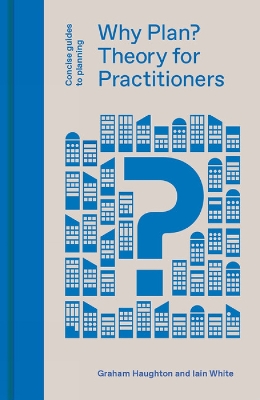Concise Guides to Planning
1 total work
Why do we plan? Who decides how and where we plan and what we should value? How do theories and ideologies filter down into real policies and plans which affect our lives?
Written in a deliberately practitioner-friendly manner, this useful guide answers these questions and reveals planning theories to be simply new ideas that can help one see the world differently. Thinking about them enables us to take a step back to appreciate the wider context. The guide discusses the value of planning, how rationales for planning have changed, and whether we have too much, too little, or just the wrong kind of planning.
It then sets out 25 key concepts central to professional practice, ranging from participation and complexity to post-politics and state theory, from risk and resilience to governmentality, from assemblage to ecosystems and sustainability.
Written in a deliberately practitioner-friendly manner, this useful guide answers these questions and reveals planning theories to be simply new ideas that can help one see the world differently. Thinking about them enables us to take a step back to appreciate the wider context. The guide discusses the value of planning, how rationales for planning have changed, and whether we have too much, too little, or just the wrong kind of planning.
It then sets out 25 key concepts central to professional practice, ranging from participation and complexity to post-politics and state theory, from risk and resilience to governmentality, from assemblage to ecosystems and sustainability.
